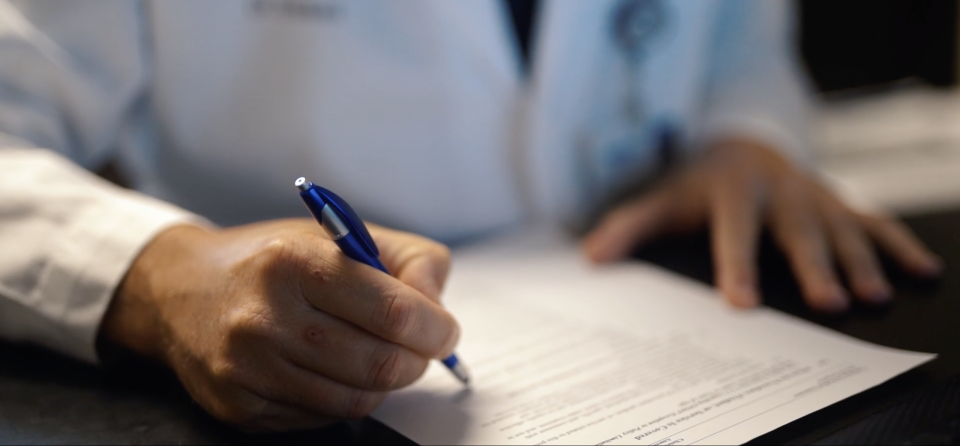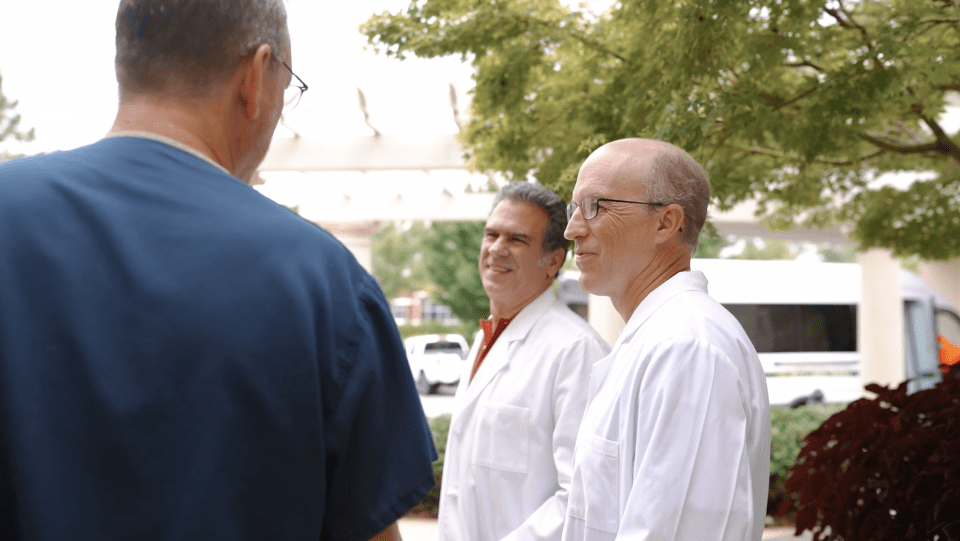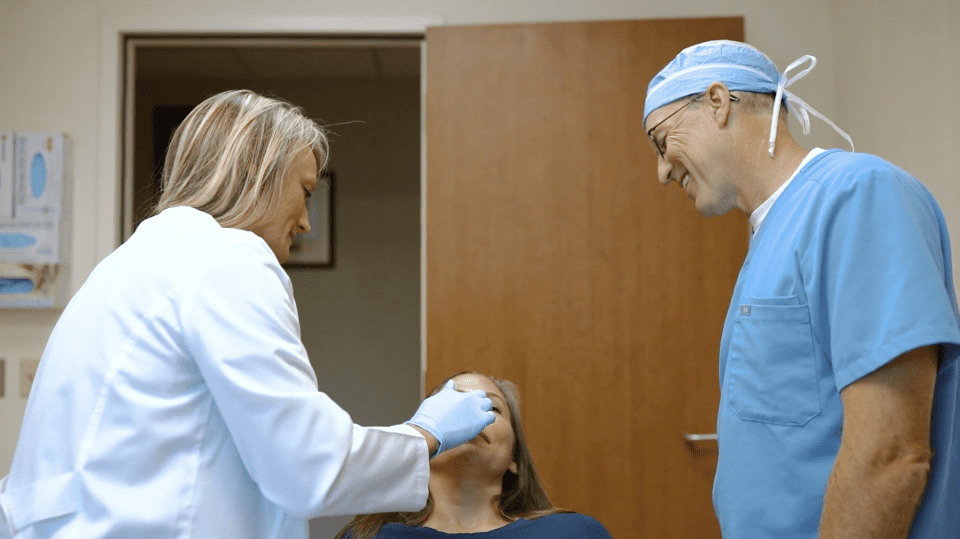Tattoo Removal
Jefferson K. Kilpatrick, MD | Russell B. Stokes, MD | Hannah Parbst, Esthetician
The Q-Switched Laser for Tattoo Removal & Brown Spot Removal
The Q Switched Yag laser is used for the removal of tattoos, brown birthmarks, age spots and other causes of brown skin discoloration. The light emitted by the laser is absorbed by the ink used in the tattoos and causes minimal injury to surrounding tissue. The rapid pulsing of the laser shatters the ink in tattoos so that it becomes small enough for the body to remove from the skin.
Several treatments of the entire tattoo are required for maximum fading or clearing. Amateur tattoos usually require an average of 2-6 treatments and professional tattoos often require 6-10 treatments, although occasionally more treatments may be necessary for both types of tattoos. There is immediate whitening of the tattoo, which disappears after several minutes. You may begin to see fading of the tattoo after several days.
Treatments may be repeated at 6-8 week intervals. There is a risk of scaring (in particular raised scars) in all cases despite proper laser treatments. The treated area may be lighter than your normal skin color for 3-5 months, after which your skin color should return to normal. Permanent lightening of the skin is rare after Q Switched Yag treatments. The treated area may sometimes become darker than the surrounding skin; this is rarely permanent and usually fades after six or more months. Infection after the treatments is also rare and can be prevented by the use of topical antibiotic ointment or an oral antibiotic as determined by your doctor. There is a small chance that a tattoo may not improve even after several treatments. The Q Switched Yag laser is less effective in removing green ink in professional tattoos. Photography may be performed to help gauge progress of the procedure. The price of the treatment varys depending on the size of the tattoo.
The Iriderm Diolite 532 for Broken Capillaries of the Face
The Diolite 532 laser treats cosmetic skin issues, primarily of the face, which include broken blood vessels and irregular bright red pigmentation (coloring).
How It Works
High-energy lasers (with a wavelength of 532 nanometers) are emitted from a laser console to target the hemoglobin in the blood vessels. The beams heat and dissolve the vessels, which rids discoloration at the skin’s surface.
Procedure
Procedures do not require anesthesia or pain medication, but a cooling gel is applied to the skin to mitigate the burning sensation. Treatment takes 10 to 30 minutes, and multiple sessions may be needed, depending on skin condition.
Side Effects and Risks
The Diolite 532 laser does not cause bruising like other laser treatments, but side effects may include redness and swelling, which subside within hours. Risks include no response from the blood vessels during treatment, and hypo – or hyperpigmentation (light or dark spots) of the treated area.
Results
The treatment results in skin that is more youthful and evenly toned, absent of redness and ruddiness. Results are long-lasting, but factors such as age, sun exposure, certain medications, trauma, and the development of skin conditions may cause redness and broken vessels to reoccur.
Jefferson K. Kilpatrick, MD ∙ Russell B. Stokes ∙ Hannah Parbst, Esthetician
Schedule An Appointment
Make an appointment with one of our plastic surgery specialists today.
Convenient Financing Options
If the cost of cosmetic services is an issue that is preventing you from having a treatment you desire, you may be interested in learning about available financing options we offer.
Our Plastic Surgeons and Esthetician
Leading Plastic Surgeons in Pinehurst, Southern Pines, Fayetteville, NC & Beyond.
Skin Care
Our office features skin care product lines for at home daily skin care treatments.




